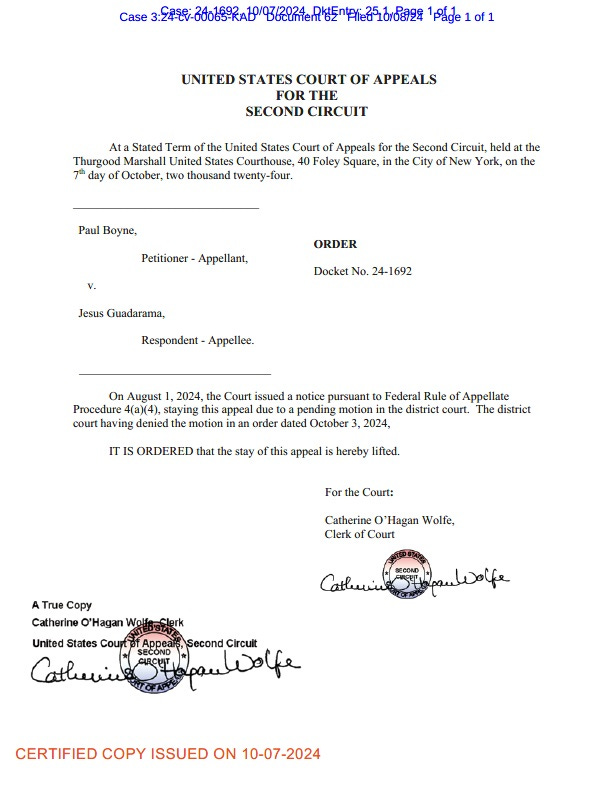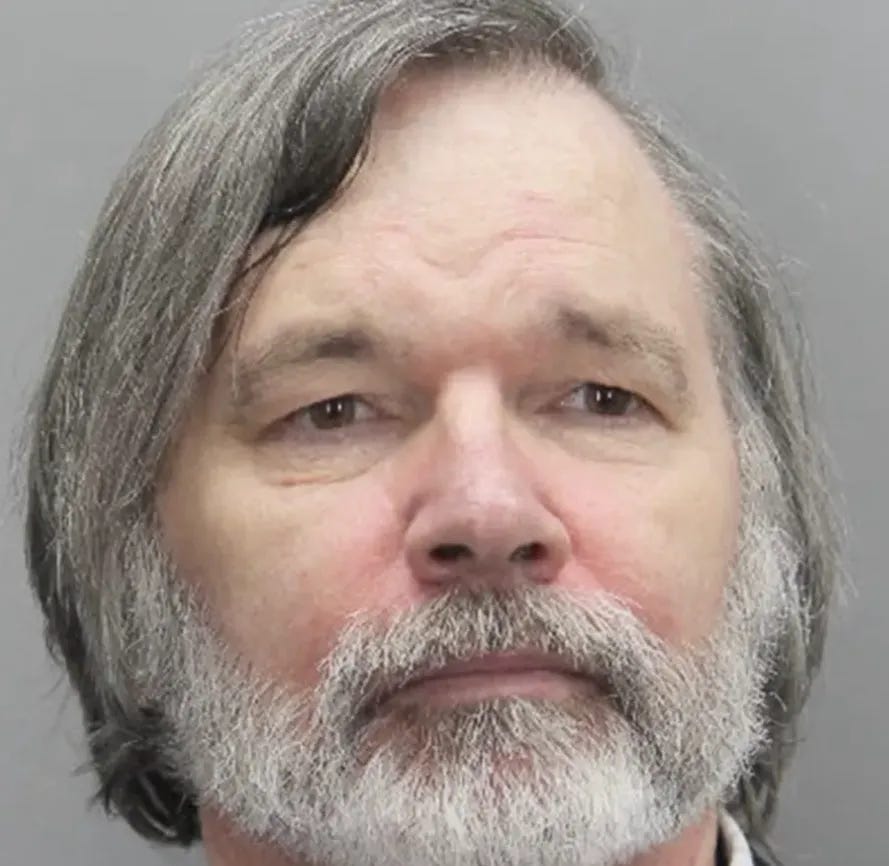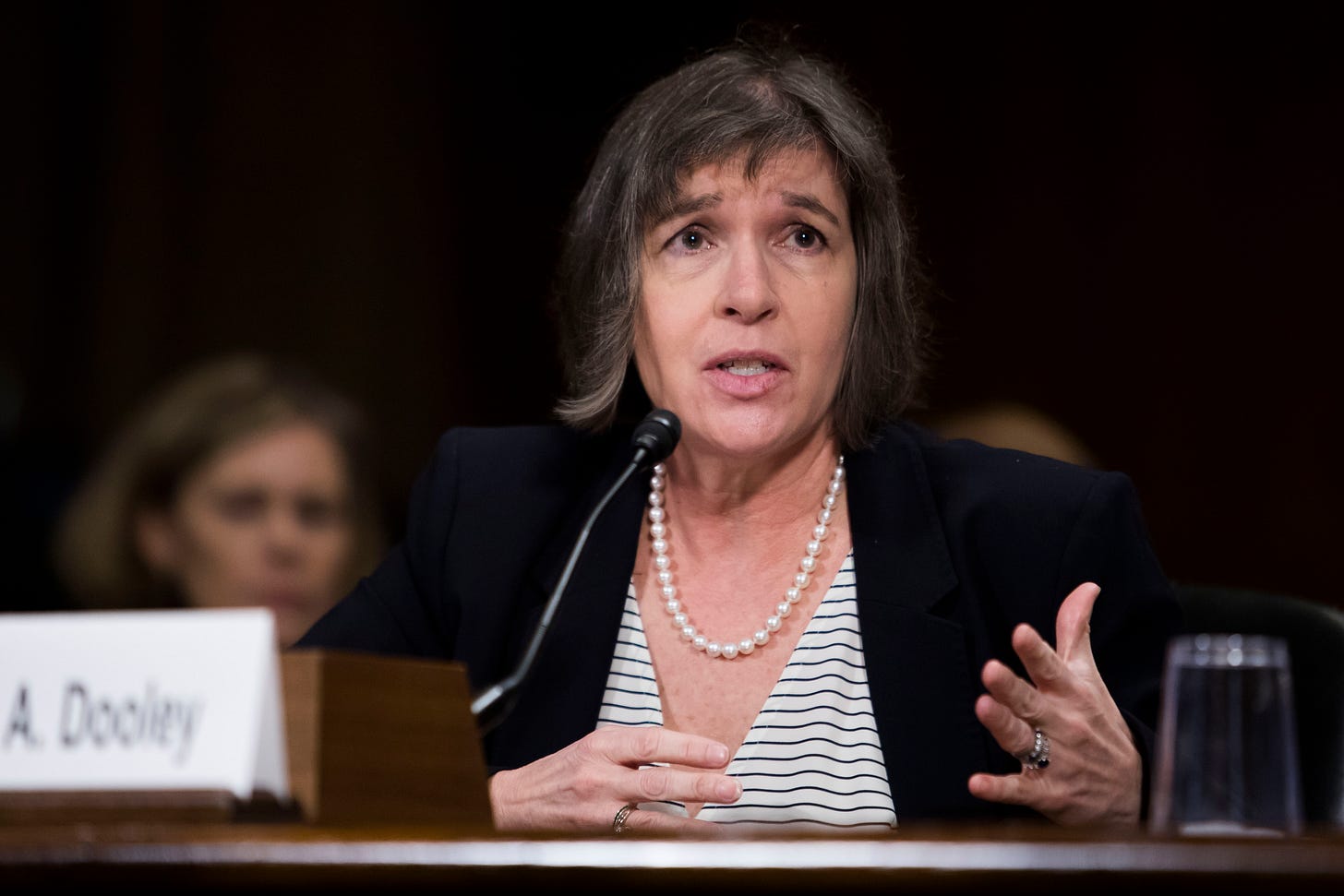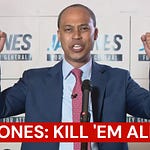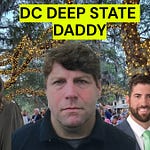"Miss [Inspector] McCord, all of the recorded conversations are on my website. You don’t need a search warrant. Just go listen to them. I put them on YouTube and the site. I don’t know why she needs a search warrant." - Michael Volpe
NOTE: On October 8, 2024, the U.S. Court of Appeals for the Second Circuit lifted its stay on Paul Boyne’s case.
Additionally, we requested detailed comments from former Justice Joette Katz at her law firm address: jkatz@goodwin.com. We previously published the request. To date, there has been no response - no admission or denial.
By Richard Luthmann
Paul Boyne is taking another shot at getting his voice heard in federal court. After facing repeated denials from Federal Judge Kari Dooley, Boyne says he is resubmitting what he claims is crucial evidence—a 2022 email proving that former Connecticut Supreme Court Justice Joette Katz has been pulling the strings in his prosecution.
On The Unknown Podcast, co-hosts Richard Luthmann and Michael Volpe dissect the latest developments in Boyne’s case, illuminating what they describe as a critical free speech battle.
Boyne, a blogger known for his harsh critiques of the state’s family court system, argues that his ongoing prosecution is a case of censorship and bad faith and that the federal court should intervene under Dombrowski v. Pfister.
Whether the U.S. Court of Appeals for the Second Circuit will consider the First Amendment ramifications of Boyne’s case remains to be seen. The Second Circuit lifted its stay on Paul Boyne’s case after Judge Dooley made her District Court ruling.
Boyne’s Dombrowski Motion and the Katz Email
Boyne’s latest legal maneuver hinges on his claim that a newly submitted email proves his prosecution is driven by personal bias, not legitimate law enforcement concerns.
Paul Boyne's Bombshell: "Former CT Supreme Court Justice Joette Katz is 'Running' My Prosecution"
NOTE: This outlet reiterates its condemnation of anti-Semitism in all its forms. However, this condemnation does not include restricting all speech expressing that hatred. We never condone using speech to incite violence against anyone, which is precisely the legal issue at the heart of
The email, dated April 19, 2022, allegedly includes multiple law enforcement officials, such as Detective Samantha McCord, Assistant State’s Attorney Brian Staines, Attorney Yuri Min, and Court Operations Director Carl Chichetti. The note "Katz Speak to Only" is scrawled across the email, which Boyne believes shows that Katz, despite no longer being a judge or prosecutor, was directing the case against him.
"They set up a computer for my so-called competency hearing. They could just as easily have a Zoom call with the federal court so I can make my record," Boyne told Luthmann, emphasizing that he is facing massive hurdles due to his incarceration. “But I want to be brought into the New Haven Federal Court and have my opportunity to be heard. It’s not hard from where they are holding me.”
Representing himself pro se, Boyne has no access to legal counsel or basic legal resources such as a law library or even word processing software. As a result, Boyne argues that his inability to present his case fully—including this pivotal email—amounts to a violation of his due process rights.
Judge Dooley’s Denial and the Younger Doctrine
Judge Dooley has so far denied Boyne’s motions, most notably his attempt to invoke Dombrowski v. Pfister. This case allows federal courts to intervene when state prosecutions are allegedly conducted in bad faith to chill free speech.
In her ruling, Dooley stated that Boyne had not demonstrated the "special circumstances" necessary to justify federal intervention under Dombrowski, instead applying the Younger v. Harris doctrine, which limits federal interference in state matters.
"Petitioner has failed to identify controlling decisions or data that might reasonably be expected to alter the conclusion reached by the court," Dooley wrote in her decision.
She also pointed out that Boyne had "ample opportunity" to raise his First Amendment claims within the Connecticut court system.
Federal Judge Denies Paul Boyne’s Dismissal, But Alleged Joette Katz Email Could Turn CT State Case Upside Down
NOTE: Paul Boyne's allegations are just that—claims that have not been substantiated in a court of law. Former Connecticut Supreme Court Justice Joette Katz has not publicly responded to these allegations. The content herein is a report on the ongoing legal proceedings and Boyne’s claims.
But Luthmann and Volpe argue that the alleged email could be the key to unlocking a deeper narrative of bad faith in Boyne’s prosecution.
"If Katz is running this show, it’s a bombshell," Luthmann said, asserting that Boyne’s claims of the involvement of a former judge with a personal stake in Boyne’s blog takedown should qualify as “special circumstances” under Dombrowski.
Luthmann and Volpe Discuss the Katz Connection
On The Unknown Podcast, Volpe and Luthmann dissected the implications of Katz’s alleged involvement in Boyne’s prosecution.
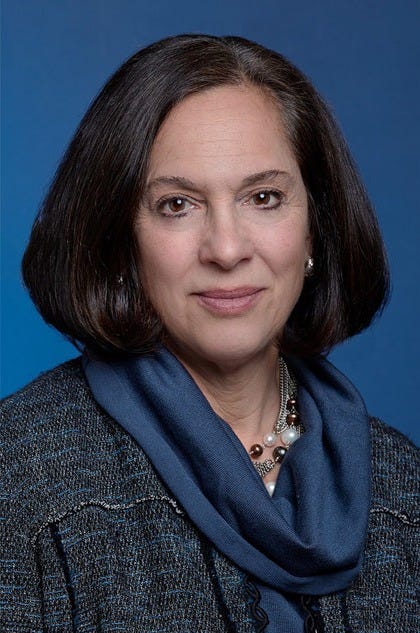
Katz has publicly condemned Boyne’s blog, TheFamilyCourtCircus.com, which has attacked judges and family court officials in Connecticut, often using inflammatory and anti-Semitic language.
Katz, in a 2022 Connecticut Law Tribune article, described the blog’s content as having escalated from offensive speech to "actual threats of violence and death."
At an Anti-Defamation League symposium that same year, Katz spoke about using legal avenues to combat hate speech, even when securing direct convictions is difficult.
Boyne believes Katz’s advocacy aligns with her alleged behind-the-scenes role in his prosecution.
"She’s not a judge anymore, but she’s still pulling the strings," Boyne insists.
Luthmann raised whether this could be a case of overreach by a former judge with a personal agenda.
"If Katz is secretly directing law enforcement, that would be a game-changer. It’s bad faith, plain and simple," Luthmann said during the podcast.
Is Boyne’s Free Speech Being Silenced?
Luthmann and Volpe also touched on Boyne's case's broader free speech implications. The state has labeled Boyne’s blog as containing "true threats." Boyne insists his posts are protected political speech to expose corruption in the Connecticut family court system.
Boyne believes the charges against him are part of a coordinated effort to silence his criticism of the judiciary, making his case a textbook example of the kind of bad-faith prosecution Dombrowski was meant to address.
Connecticut investigators cited Boyne’s communications with Volpe, a journalist, in their most recent probable cause affidavit, sparking concerns over the erosion of First Amendment protections and the potential chilling effect on press freedom.
Volpe highlighted that a warrant request by Connecticut investigator McCord is unnecessary.
"Miss [Inspector] McCord, all of the recorded conversations are on my website. You don’t need a search warrant. Just go listen to them. I put them on YouTube and the site. I don’t know why she needs a search warrant," Volpe said.
The affidavit, filed by Connecticut investigators, cited Boyne’s emails and conversations with Volpe as part of their justification for further action, effectively criminalizing his association with a journalist. This move threatens Boyne’s right to free speech and has far-reaching implications for the freedom of the press.
Journalists rely on open communication with sources to uncover the truth, often on sensitive issues involving government actions. Using a journalist’s conversations as probable cause sets a dangerous precedent, where reporters could be dragged into legal battles simply for doing their job.
Luthmann pointed out the dystopian nature of such tactics, saying, “When the state can surveil and use a journalist’s communications with a source as evidence to justify prosecution, it’s no longer just an attack on that individual—it’s an attack on the press and the freedom of speech itself.”
The stakes in Boyne’s case have now extended beyond his individual prosecution to the broader issue of press rights. If law enforcement can use communications between journalists and their sources to justify legal action, the entire foundation of investigative journalism is threatened.
Boyne Pushes for a Hearing
In resubmitting the Katz email, Boyne requests a hearing to present his evidence to Judge Dooley.
"I have a right to make my case," Boyne emphasized.
Luthmann and Volpe speculated that if Boyne is allowed to present the email and it proves Katz’s involvement, it could unravel the entire state case against him.
"The question remains: Did Joette Katz cross a line that could invalidate this prosecution? If she did, the Court has to take a closer look," Luthmann said.
Boyne’s next move will likely determine whether the District Court reexamines his case and the “Speak To Katz Only” email and whether the federal appeals court considers the issues.
Boyne’s future remains uncertain for now, but his fight continues—both in the courts and in public opinion. As Luthmann and Volpe pointed out, the stakes are high for Boyne and for free speech advocates nationwide.



